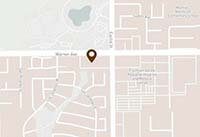To Buy Naprosyn Online Visit Our Pharmacy ↓
 Naprosyn: Understanding Potential Drug Interactions
Naprosyn: Understanding Potential Drug Interactions
Overview of Naprosyn and Its Uses
Naprosyn, a commonly prescribed NSAID, is frequently used to treat pain and inflammation associated with conditions like arthritis and tendinitis. This elixir of relief primarily works by reducing hormones that cause inflammation and pain in the body. As an Rx medication, it is crucial to understand both its benefits and risks. Patients need to follow the Sig precisely to maximize its efficacy while minimizing potential side effects. Here’s a quick view of Naprosyn Uses:
| Use | Description |
|---|---|
| Arthritis | Reduces joint pain and inflammation |
| Tendinitis | Alleviates tendon pain and swelling |
| Dysmenorrhea | Relieves menstrual cramps |
Common Drugs That Interact with Naprosyn

When managing chronic conditions, it's crucial to be aware of how naprosyn interacts with other prescriptions. For instance, combining naprosyn with blood thinners like warfarin can escalate the risk of bleeding. Similarly, using it with other NSAIDs or corticosteroids, such as prednisone, can amplify gastrointestinal irritation. Additionally, mixing naprosyn with certain antidepressants, often referred to as happy pills, can increase the danger of ulcers or bleeding. It's always essential to conduct a thorough Meds Check to ensure there are no harmful overlaps in your medication regimen.
Understanding Over-the-counter Medication Interactions
When considering the use of Naprosyn, it is essential to be aware of the interactions it may have with over-the-counter (OTC) medications. For instance, combining Naprosyn with other nonsteroidal anti-inflammatory drugs (NSAIDs) like ibuprofen or aspirin can increase the risk of adverse side effects, including gastrointestinal bleeding. Additionally, using Naprosyn alongside OTC cold and allergy medications containing decongestants may elevate blood pressure, posing a significant risk.
Engaging in a "Meds Check" with your pharmacist can provide clarity on safe combinations and highlight any red flags associated with your medication regimen. It's crucial to follow the "Sig" precisely and consult a healthcare provider before adding any new OTC medications to your routine. Remember, even non-script drugs can have powerful effects that interact negatively with prescribed medications. Therefore, understanding these potential interactions helps you mitigate risks and ensures the efficacy of Naprosyn, maintaining your overall well-being.
How Herbal Supplements Affect Naprosyn

Many individuals turn to herbal supplements as natural alternatives or complementary therapies to their prescriptions. However, combining these with Naprosyn may lead to unpredictable outcomes. For instance, supplements like ginkgo biloba or garlic, which are known to have blood-thinning properties, can enhance Naprosyn’s effects, increasing the risk of bleeding. On the other hand, St. John’s Wort might reduce its efficacy by accelerating Naprosyn metabolism, reducing its benefits.
Navigating these interactions effectively requires more than just reading the script. It’s crucial to consult healthcare providers before mixing any herbal elixir with Naprosyn. They can provide proper sig and help monitor for any potential side effects. Awareness and educated decisions prevent unpleasant surprises and ensure safe and effective medication use.
Potential Side Effects of Drug Interactions
When combining Naprosyn with other medications, the potential for adverse effects rises significantly. One common side effect is gastrointestinal bleeding, which can occur more frequently when Naprosyn is taken concurrently with other nonsteroidal anti-inflammatory drugs (NSAIDs) or anticoagulants. The "Script" involving Naprosyn might also leave users experiencing dizziness or elevated blood pressure, particularly when paired with certain antidepressants or blood pressure medications.
Additionally, herbal supplements are not without their challenges; ingredients in these can exacerbate side effects or diminish Naprosyn's effectiveness. For instance, taking St. John's Wort—a well-known herbal supplement—alongside Naprosyn could lead to reduced efficacy, necessitating a "Stat" revisit to your healthcare provider to adjust your script for optimum safety.
| **Common Interacting Drug** | **Possible Side Effect** | |-----------------------------|-----------------------------| | Other NSAIDs | Gastrointestinal bleeding | | Anticoagulants | Increased bleeding risk | | Antidepressants | Elevated blood pressure | | Herbal supplements (e.g., St. John's Wort) | Reduced efficacy of Naprosyn |
Safe Practices for Taking Naprosyn
When taking Naprosyn, it’s crucial to follow the "Rx" instructions provided. Adhering to the "Sig" sheet directions will help mitigate potential interactions and side effects. Always inform your healthcare provider of all medications and supplements you're using to avoid any adverse reactions. It's worth noting that certain "OTC" medications can interact with Naprosyn, so read labels carefully.
Moreover, storing Naprosyn properly and following regular "Meds Check" appointments can ensure its efficacy. Never "Count and Pour" other people's prescriptions or engage in a "Pharm Party," as this can lead to serious health risks. Always prioritize your safety and health by using medications responsibly.





